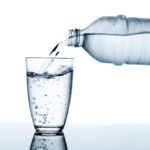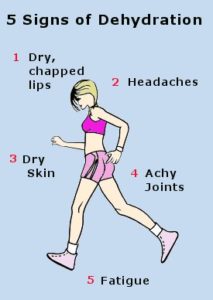Story by Lifestyle Desk
Here’s what to know about uric acid levels and kidney function:
A less commonly spoken health risk among those associated with lack of adequate water intake is less uric acid levels in the body. Notably, while uric acid is a waste product, produced during the breakdown of various foods and drinks, its production too affects your health.
“Normally, uric acid dissolves in the blood and is discarded by the kidneys through urine. But in some cases, the body produces excess uric acid or the kidney dysfunction doesn’t excrete the required amount of uric acid, resulting in hyperuricemia. Long-term hyperuricemia can lead to development of gout, a painful form of arthritis, or kidney stones,” Dr Avanish Arora, director – Urology and Uro-Oncology & Senior Consultant – Robotic Urology, Nanavati Max Super Specialty Hospital, Mumbai told indianexpress.com.
Continue reading “Experts on how water intake affects uric acid levels in the body”

 In a desperate search to consume a safer water source than the parasite, dioxin and
In a desperate search to consume a safer water source than the parasite, dioxin and  Yes. Proper hydration is a fundamental requirement to maintain the health of our bodies. Our bodies are 75% water and 25% solid matter. Water is needed to eliminate waste and provide nourishment, in addition to regulating billions of other activities in the body. Hydration takes place when the minerals connect with water and provide electrolytes, cellular fluids, and tissue balance. This balance is crucial to preserve the electrical charge of our cells, as well as maintain a
Yes. Proper hydration is a fundamental requirement to maintain the health of our bodies. Our bodies are 75% water and 25% solid matter. Water is needed to eliminate waste and provide nourishment, in addition to regulating billions of other activities in the body. Hydration takes place when the minerals connect with water and provide electrolytes, cellular fluids, and tissue balance. This balance is crucial to preserve the electrical charge of our cells, as well as maintain a